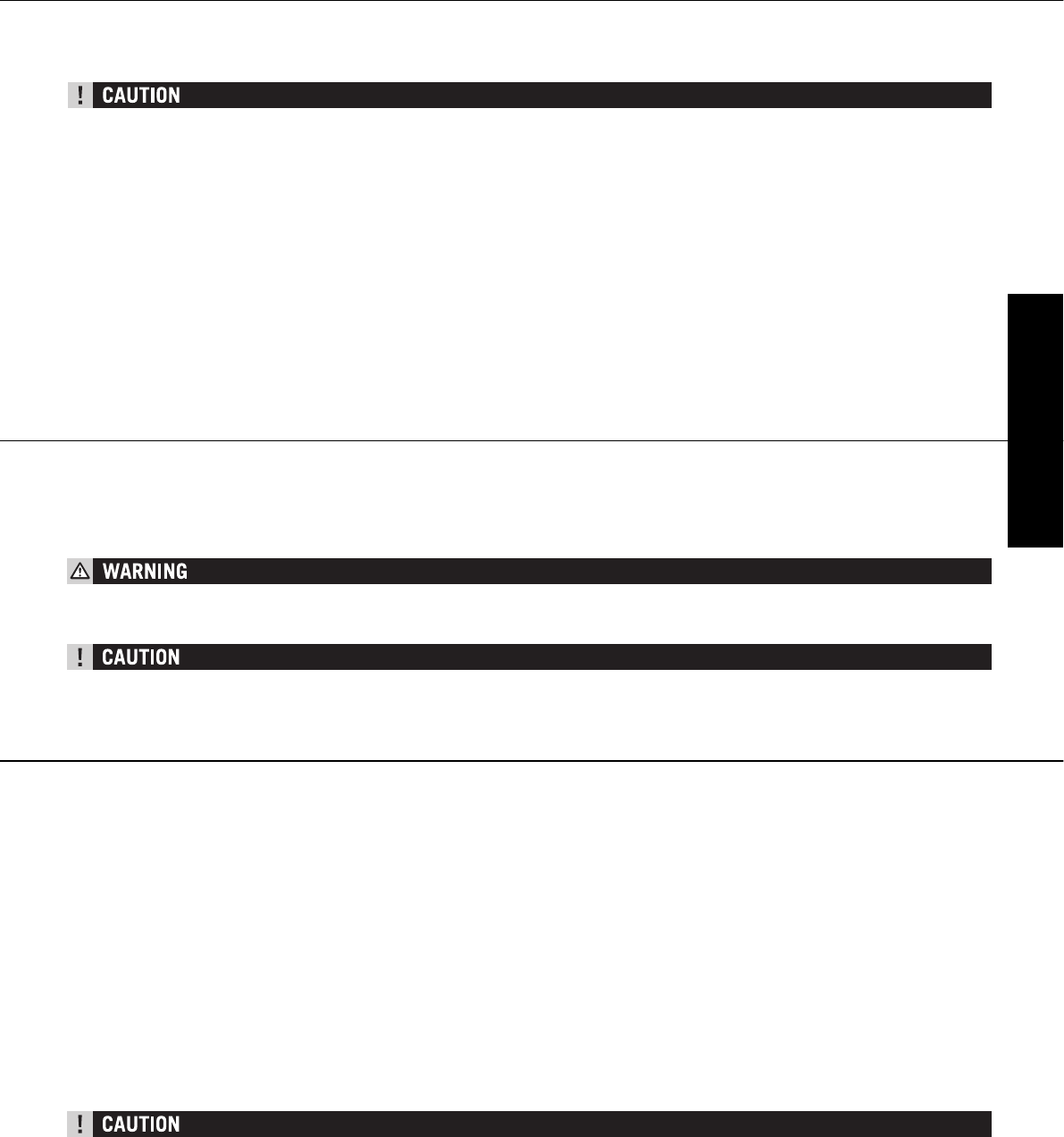
ENGLISH
51
CLEANING »
Clean your motorcycle regularly in order to maintain the beauty of its plastic surfaces.
The best manner would be to use warm water that has been mixed with a normal brand-name washing detergent and a sponge.
The hard dirt can be removed before washing with the help of a soft water jet.
NEVER CLEAN YOUR MOTORCYCLE WITH A HIGH-PRESSURED CLEANER OR A HIGH-PRESSURED WATER JET. THE WATER COULD OTHERWISE
RUN INTO THE ELECTRICAL COMPONENTS, CONNECTORS, SHEATHED CABLES, BEARINGS, CARBURETOR, ETC. AND CAUSE DISTURBANCES
OR LEAD TO A PREMATURE DESTRUCTION OF THESE PARTS.
– You should use normal brand-name detergents to clean the motorcycle. Especially dirty parts should also be cleaned with the help
of a paint brush.
– Before cleaning with water, plug the exhaust pipe to prevent water ingress
– After the motorcycle has been rinsed with a soft water jet, it should be dried by air pressure and a cloth. Drain the float chamber
of the carburetor. Then take a short drive until the engine has reached the working temperature and also use the brakes. By war-
ming these components, the residual water can evaporate from inaccessable parts of the engine and the brakes.
– Slide back the protective covers on the handlebar-mounted instruments so that any water that may have seeped into this part of
the motorcycle is allowed to evaporate.
– Once the motorcycle has cooled down, oil or grease all sliding and bearing points. Treat the chain with a chain spray. Also oil the
fuel tap.
– To avoid any failures in of the electric system, you should treat the emergency-OFF switch, short-circuit button, light switch and
socket connectors with a contact spray.
In the event that the motorcycle is also used in winter and on roads where one has to expect salt spraying, you will have to take pre-
cautions against the aggressive road salt.
– clean the motorcycle thoroughly and let it dry after each ride
– treat the engine, carburetor, swing arm, and all other bare or galvanized parts (except for brake discs) with a wax-based anti-corro-
sion agent.
KEEP THE ANTI-CORROSION AGENT FROM GETTING INTO CONTACT WITH THE BRAKE DISCS, OTHERWISE THIS WILL SIGNIFICANTLY REDUCE
THE BRAKING POWER.
AFTER RIDES ON SALTED ROADS, CLEAN MOTORCYCLE THOROUGHLY WITH COLD WATER AND LET IT DRY WELL.
Should you wish to make a pause over a longer space of time, please observe the following instructions:
– Clean motorcycle thoroughly (see chapter: CLEANING)
– Change engine oil, short and long oil filters (old engine oil contains aggressive contaminants).
– Check antifreeze and amount of cooling liquid.
– Warm up the engine once again, close the fuel cock and wait until the engine dies. Then open the drain plug of the float chamber
to remove the remaining fuel.
– Remove spark plug and fill in approx. 5 ccm of engine oil into the cylinder through the opening. Actuate kick-starter 10 times in
order to distribute the oil onto the cylinder walls and mount the spark plug.
– Set piston to compression so that the valves will be closed (slowly operate the kickstarter until you can hear the automatic
decompressor click (release))
– Let fuel flow out of tank into an appropriate container.
– Correct tire pressure.
– Lubricate pivot points of the control levers, foot rests, etc. as well as the chain.
– Service the shock absorber linkage
– Disassemble and charge battery (see chapter: BATTERY).
– The storage place should be dry and not subjected to excessive temperature fluctuations.
– Cover the motorcycle with an air permeated tarpaulin or blanket. Do not use airtight materials as a possible humidity might not be
able to escape and could cause corrosion.
IT WOULD BE VERY BAD TO LET THE ENGINE RUN FOR A SHORT TIME DURING THE STORAGE PERIOD. THE ENGINE WOULD NOT GET WARMED
UP ENOUGH AND THE THUS DEVELOPED STEAM WOULD CONDENSE DURING THE COMBUSTION PROCESS AND CAUSE THE VALVES AND EXHAUST
TO RUST.
USE AFTER A PERIOD OF STORAGE
– Mount the charged battery (regard polarity).
– Fill up tank with fresh fuel.
– Check motorcycle as before each start (see driving instructions).
– Take a short, careful test ride first.
NOTE: Before you put your motorcycle away for the winter, you should check all parts for their function and wear. Should any service
jobs, repairs, or any refitting be necessary, you should have them carried out during the off-season (lower workload at mechanics’ shops).
This way, you can avoid the long waiting times at your mechanic at the beginning of the next biking season.
CONSERVATION FOR WINTER OPERATION »
STORAGE »


















